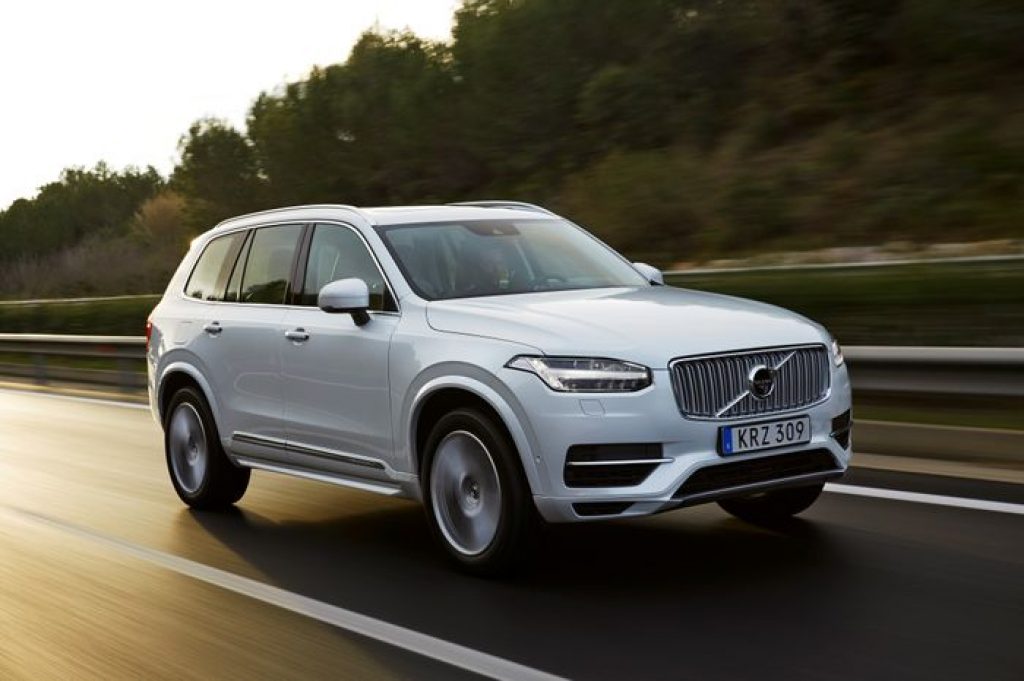CES—Volvo Cars will use the NVIDIA DRIVE™ PX 2 deep learning- based computing engine to power a fleet of 100 Volvo XC90 SUVs starting to hit the road next year in the Swedish carmaker’s Drive Me autonomous-car pilot program, NVIDIA announced today.
Autonomous technology is an important contributor to Volvo's Vision 2020 — its guiding principles for creating safer vehicles. This work has resulted in world-leading advancements in autonomous and semi-autonomous driving, and a new safety benchmark for the automotive industry.
"Our vision is that no one should be killed or seriously injured in a new Volvo by the year 2020," said Marcus Rothoff, director of the Autonomous Driving Program at Volvo Cars. "NVIDIA's high-performance and responsive automotive platform is an important step towards our vision and perfect for our autonomous drive program and the Drive Me project."
Volvo's Drive Me autonomous pilot program will equip the luxury cars with the NVIDIA DRIVE PX 2 engine, which uses deep learning to navigate the complexities of driving. The cars will operate autonomously on roads around Gothenburg, the carmaker's hometown, and semi-autonomously elsewhere.
"Volvo's Drive Me project is the ideal application of our DRIVE PX 2 engine and deep learning," said Rob Csongor, vice president and general manager of Automotive at NVIDIA. "We are bringing years of work by thousands of NVIDIA engineers to help Volvo achieve its safety goals and move self-driving cars from Gothenburg to the rest of the globe."
Recognizing Objects Beyond Reach of Human Algorithms
The NVIDIA DRIVE PX 2 engine enables cars to utilize deep learning — a form of artificial intelligence — to recognize objects in their environment, anticipate potential threats and navigate safely. With 8 teraflops of processing power — equivalent to 150 MacBook Pros — it processes data from multiple sensors in real time, providing 360-degree detection of lanes, vehicles, pedestrians, signs and more, to enable a variety of autopilot functions.
Recent deep-learning breakthroughs have greatly enhanced computers' ability to perceive the outside world. Using vast amounts of data and processing power, they can write software to recognize complex objects at a level beyond the reach of human-coded algorithms.
Much deep learning work is powered by NVIDIA's supercomputing GPUs. For example, Microsoft and Google have used GPUs to create image-recognition systems that beat a well-trained human in the ImageNet Large Scale Visual Recognition Challenge. And Microsoft researchers recently trained a deep neural net that beat a human in IQ tests.
Map Localization and Path Planning
For map localization and path planning, the system can compare real-time situational awareness with a known high-definition map, enabling it to plan a safe route and drive precisely along it, adjusting to ever-changing circumstances. DRIVE PX 2 will also perform other critical functions such as stitching camera inputs to create a complete surround-view of the car.
Because self-driving cars require massive computing resources to interpret the data from multiple sensors, most early prototypes have contained a trunk full of computers. In contrast, DRIVE PX 2, which carries out the same functions, is the size of a tablet.
Keep Current on NVIDIA
Subscribe to the NVIDIA blog, follow us on Facebook, Google+, Twitter, LinkedIn and Instagram, and view NVIDIA videos on YouTube and images on Flickr.
About NVIDIA
Since 1993, NVIDIA (NASDAQ: NVDA) has pioneered the art and science of visual computing. With a singular focus on this field, the company offers specialized platforms for the gaming, automotive, data center and professional visualization markets. Its products, services and software power amazing new experiences in virtual reality, artificial intelligence and autonomous cars. More information at http://nvidianews.nvidia.com/.


